Why More People Are Looking for Natural Ways to Get Caffeine Without Coffee
For years, coffee has held the spotlight as the go-to morning energizer, offering a reliable jolt of caffeine to jumpstart the day. But more people are seeking alternative ways to get caffeine without coffee due to concerns about acidity, jitteriness, dependency, and digestive discomfort. While coffee certainly delivers a stimulating boost, it’s not always the most suitable option for everyone—especially those with sensitive stomachs, anxiety disorders, or disrupted sleep patterns. As health-conscious consumers turn toward cleaner, more functional wellness choices, they’re uncovering a world of natural beverages that offer mental clarity and focus without relying on a cup of joe.
You may also like: Best Herbal Stimulants for Energy and Focus: Natural Uppers That Work Without Caffeine
There’s also a growing movement around biohacking—where individuals are optimizing energy and productivity through nootropics, adaptogens, and strategic nutrition. This has led to renewed interest in natural caffeine sources that support not only wakefulness, but also cognitive performance and long-term brain health. Whether you’re aiming to avoid coffee’s crash, reduce reliance on stimulants, or simply switch things up in your routine, exploring natural ways to get caffeine without coffee can open the door to sustained focus, energy, and vitality—all without the common drawbacks.
In this guide, we’ll dive deep into the best morning caffeine drinks that don’t involve coffee. From green teas and matcha to yerba mate, guayusa, cacao, and more, each option offers unique advantages. These beverages not only contain naturally occurring caffeine but are often rich in antioxidants, L-theanine, polyphenols, and other compounds that help support mental clarity without overstimulation. Let’s explore how to start your day right—with nature’s finest energy-enhancing drinks.
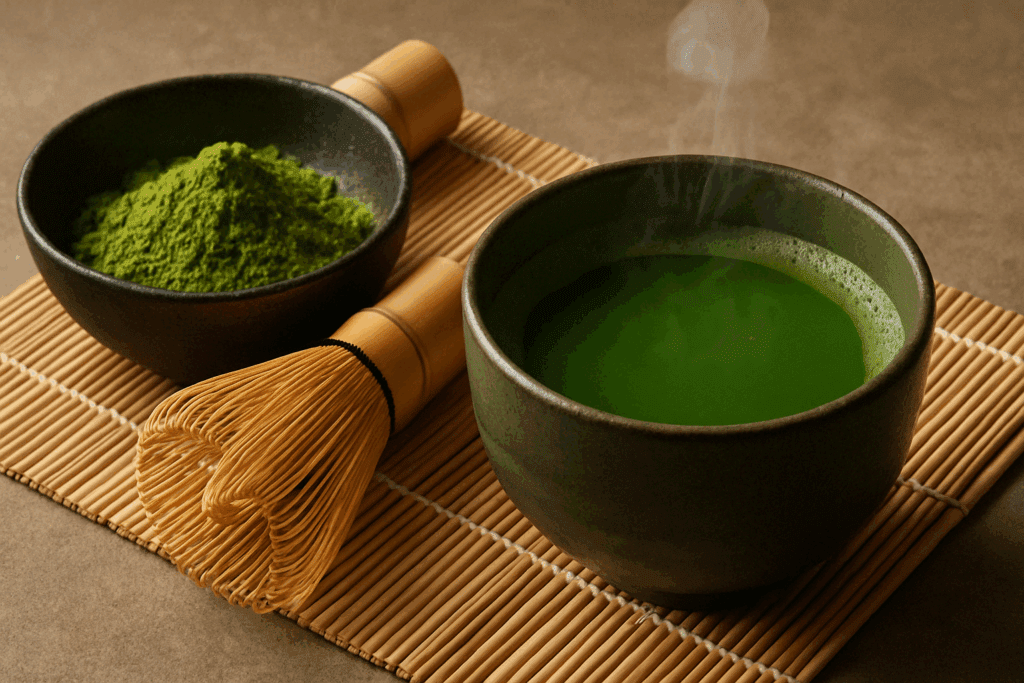
Matcha: The Focus-Friendly Green Tea Alternative to Coffee
Among the most celebrated coffee alternatives, matcha stands out for its unique ability to provide both stimulation and calm. Derived from shade-grown Japanese green tea leaves that are stone-ground into a fine powder, matcha contains a moderate dose of caffeine, usually around 30–70 mg per serving. What sets it apart is its high concentration of L-theanine—a naturally occurring amino acid that promotes relaxation and alpha brainwave activity.
L-theanine works synergistically with caffeine to enhance alertness while reducing the anxiety and jitteriness typically associated with stimulants. This balanced effect makes matcha one of the best morning caffeine drinks for individuals who want to sharpen their focus without the crash. Matcha also boasts an impressive antioxidant profile, particularly catechins like EGCG (epigallocatechin gallate), which support cellular health, metabolic function, and even skin vibrancy.
Matcha preparation is also a mindful ritual in itself, encouraging users to slow down, breathe, and engage their senses. This aligns with the principles of intentional living—where every aspect of your routine, including your energy source, serves a broader wellness goal. As more people turn to natural ways to get caffeine without coffee, matcha offers a centuries-old solution backed by both science and tradition.
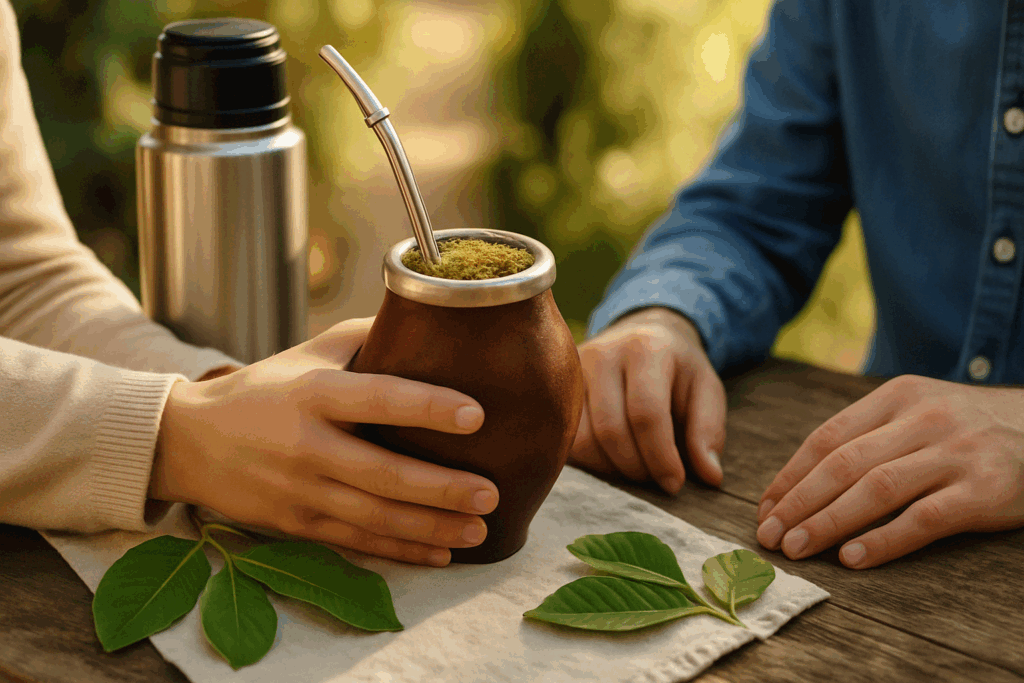
Yerba Mate: South America’s Herbal Powerhouse for Mental Energy
If you’re looking for a drink that delivers robust stimulation with added nutritional benefits, yerba mate deserves serious attention. Originating from the leaves of the Ilex paraguariensis plant in South America, this traditional beverage contains between 70 to 85 mg of caffeine per serving—comparable to a small cup of coffee. However, yerba mate’s effect feels different, thanks to its unique blend of xanthines, theobromine, and polyphenols.
Unlike coffee, which can overstimulate the central nervous system, yerba mate offers a more gradual, sustained release of energy. It’s often described as providing a state of “alert relaxation,” where focus is heightened but calmness remains intact. This quality makes it especially appealing to those seeking natural ways to get caffeine without coffee’s intensity or after-effects.
Yerba mate is also rich in vitamins (such as B1 and B2), minerals (including magnesium and potassium), and antioxidants that support immune function and cellular resilience. In some regions, it’s consumed communally—passed around in a gourd as a symbol of friendship and connection. Beyond being one of the best morning caffeine drinks for mental clarity, yerba mate also brings cultural richness and a sense of belonging to your routine.
Guayusa: The Clean Energy Leaf from the Amazon Rainforest
Closely related to yerba mate but with its own unique attributes, guayusa is another herbal leaf from the Amazon that’s gaining recognition among energy seekers. Native to Ecuador, guayusa comes from the Ilex guayusa tree and contains about 70–90 mg of caffeine per serving. What sets guayusa apart is its exceptionally smooth, clean energy—often referred to as “no-crash caffeine.”
Guayusa doesn’t just energize—it enhances cognitive endurance, reaction time, and even mood stability. It’s often described by biohackers and herbalists as one of the best morning caffeine drinks for mental clarity, particularly when deep work or extended focus is needed. Its caffeine is accompanied by L-theanine, chlorogenic acids, and polyphenols, all of which support brain health and reduce oxidative stress.
Many energy drinks and performance teas now use guayusa as a functional ingredient, citing its ability to offer alertness without overstimulation. This makes it a compelling choice for those exploring natural ways to get caffeine without coffee—especially people who are sensitive to caffeine’s harsher effects or who work in high-focus professions like programming, research, or design.
Cacao: A Gentle Mood-Lifting Brew with Natural Stimulants
For those seeking a gentler, mood-enhancing alternative to coffee, cacao provides a heart-opening experience packed with cognitive perks. Cacao contains theobromine, a close relative of caffeine that offers a milder, longer-lasting stimulant effect without the spike-and-crash pattern associated with coffee. While its caffeine content is lower (typically 10–30 mg per serving), theobromine still promotes alertness and blood flow to the brain.
Cacao also boosts endorphins and contains phenylethylamine (PEA), a compound often called the “love chemical” due to its euphoric effects. These properties make it not only energizing but also emotionally uplifting. Additionally, cacao is rich in magnesium, iron, and flavonoids that support neural function and cardiovascular health. For those drawn to natural ways to get caffeine without coffee, cacao delivers warmth, comfort, and clarity in one richly flavored package.
Drinking ceremonial-grade cacao in the morning can become a mindful, grounding ritual. It’s especially beneficial for those who want to start the day with intentional energy and heart-centered focus rather than with a surge of adrenaline. As a result, cacao is increasingly recognized among holistic practitioners and creatives as one of the best morning caffeine drinks for both body and mind.
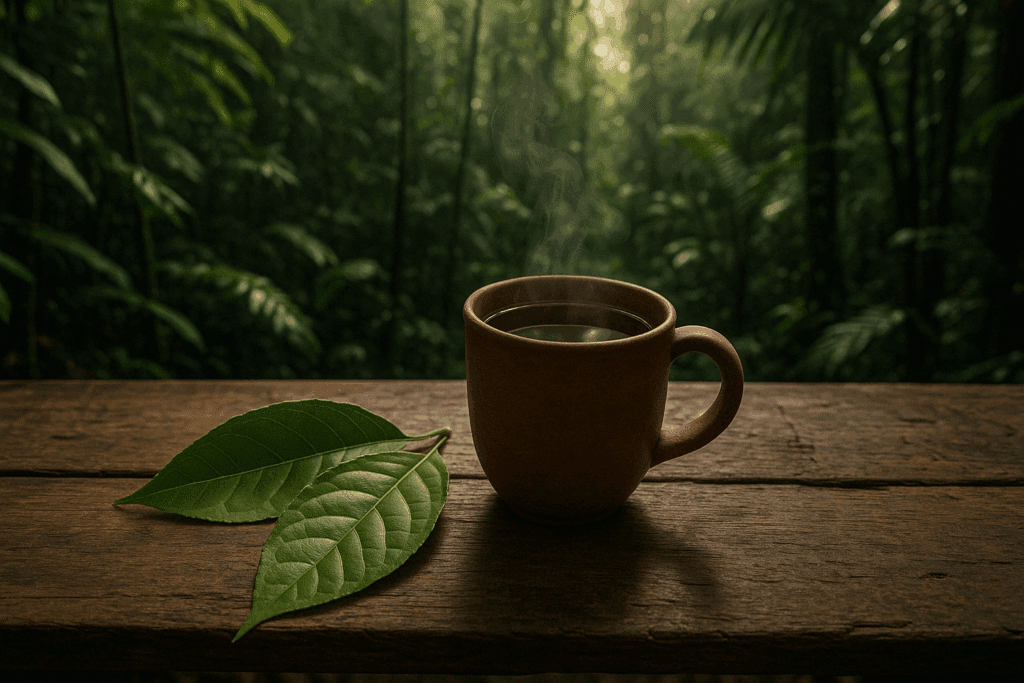
Green Tea and Its Variants: Mild Stimulation with Potent Brain Benefits
Traditional green tea, whether sencha, gyokuro, or dragonwell, is another cornerstone in the world of gentle stimulants. Containing around 25–45 mg of caffeine per cup, green tea offers a low-dose option that still provides a noticeable energy lift. Like matcha, green tea is abundant in L-theanine, which tempers the stimulating effects of caffeine to promote focused calm.
What makes green tea particularly valuable among natural ways to get caffeine without coffee is its well-documented support for cognitive longevity. The polyphenols in green tea have been shown to protect neurons, reduce inflammation, and support memory retention. For individuals seeking sustainable mental performance rather than short bursts of energy, green tea is a staple.
Green tea is also versatile—you can consume it hot, iced, or cold-brewed, and even blend it with adaptogens like ashwagandha or rhodiola for additional stress resilience. For those creating a morning routine around clarity and gentle stimulation, it remains one of the best morning caffeine drinks for the health-conscious mind.
Ginseng Infusions: Natural Energy Without Caffeine Dependency
Although ginseng doesn’t contain caffeine in the traditional sense, it’s still worth mentioning for its energizing effects. Panax ginseng and American ginseng are adaptogenic roots known to enhance vitality, improve stress response, and boost mental performance. Their stimulating effect stems from ginsenosides—bioactive compounds that modulate neurotransmitter activity and energy metabolism.
Because it doesn’t rely on caffeine to exert its benefits, ginseng can be an excellent morning drink when paired with mild caffeine sources like green tea or cacao. It enhances mental endurance and alertness without risking overstimulation, making it a key player among natural ways to get caffeine without coffee. Some ginseng infusions even include small amounts of guayusa or matcha to create balanced, functional beverages.
For individuals who are actively reducing their caffeine intake but still want to maintain productivity and focus, ginseng offers a solution rooted in centuries of traditional medicine. Its energizing yet adaptogenic profile makes it especially suitable for professionals facing mentally demanding tasks.
Adaptogenic Energy Tonics: Balancing Stamina with Mental Clarity
Adaptogens like rhodiola rosea, eleuthero (Siberian ginseng), and schisandra have long been used to enhance energy, reduce fatigue, and improve resilience to stress. While these herbs don’t contain caffeine, they work by regulating the hypothalamic-pituitary-adrenal (HPA) axis—supporting your body’s natural energy rhythm. When paired with low-caffeine ingredients like green tea or guayusa, they can form powerful morning tonics.
What distinguishes adaptogenic tonics in the realm of natural ways to get caffeine without coffee is their long-term effect. Rather than spiking energy, they build underlying stamina, mental sharpness, and stress tolerance. Over time, this leads to more consistent cognitive performance, improved mood, and reduced need for stimulants.
Many functional beverage brands now create morning drinks that incorporate these adaptogens with just a touch of caffeine for synergy. This hybrid model allows users to get the best of both worlds—gentle stimulation and deep hormonal support. As such, adaptogenic tonics are quickly joining the ranks of the best morning caffeine drinks available to health-forward individuals.
The Role of Hydration and Electrolytes in Morning Energy
Though often overlooked, proper hydration plays a critical role in supporting morning alertness and cognitive function. Dehydration—even mild—can lead to fatigue, brain fog, and reduced concentration. Starting the day with an electrolyte-rich beverage such as lemon water with pink salt, coconut water, or herbal tea infused with minerals can set the stage for optimal mental clarity.
Some nootropic blends combine low doses of natural caffeine with hydration-supportive ingredients like magnesium, potassium, and trace minerals. These offer a layered approach to energy—addressing both neurochemical and physiological needs. In this context, hydration-focused drinks serve as a complementary strategy among the best morning caffeine drinks, especially when combined with other natural stimulants.
When you’re exploring natural ways to get caffeine without coffee, don’t underestimate the role of water, minerals, and fluid balance. Sometimes, the most effective cognitive boost comes not just from stimulants, but from restoring foundational biological function through hydration.
Redefining Your Morning Routine with Clean, Natural Energy
Shifting away from traditional coffee doesn’t mean sacrificing mental sharpness or productivity. In fact, many people find that natural caffeine sources offer more balanced and sustainable energy. Whether you’re drawn to the calm clarity of matcha, the communal power of yerba mate, or the smooth endurance of guayusa, there are countless ways to support focus and vitality without reaching for the coffee pot.
These options are more than just substitutes—they represent a shift toward mindful consumption, where the goal is not just to “wake up,” but to optimize brain function, emotional balance, and long-term wellness. As we rethink our relationship with caffeine, it’s worth recognizing that the best morning caffeine drink might not be the strongest—but the one that harmonizes most with your body and goals.
By integrating these natural ways to get caffeine without coffee into your lifestyle, you create space for more intentional, health-aligned routines. Each cup becomes a moment to energize with purpose rather than habit. And in doing so, you pave the way for mornings filled with clarity, resilience, and authentic productivity.
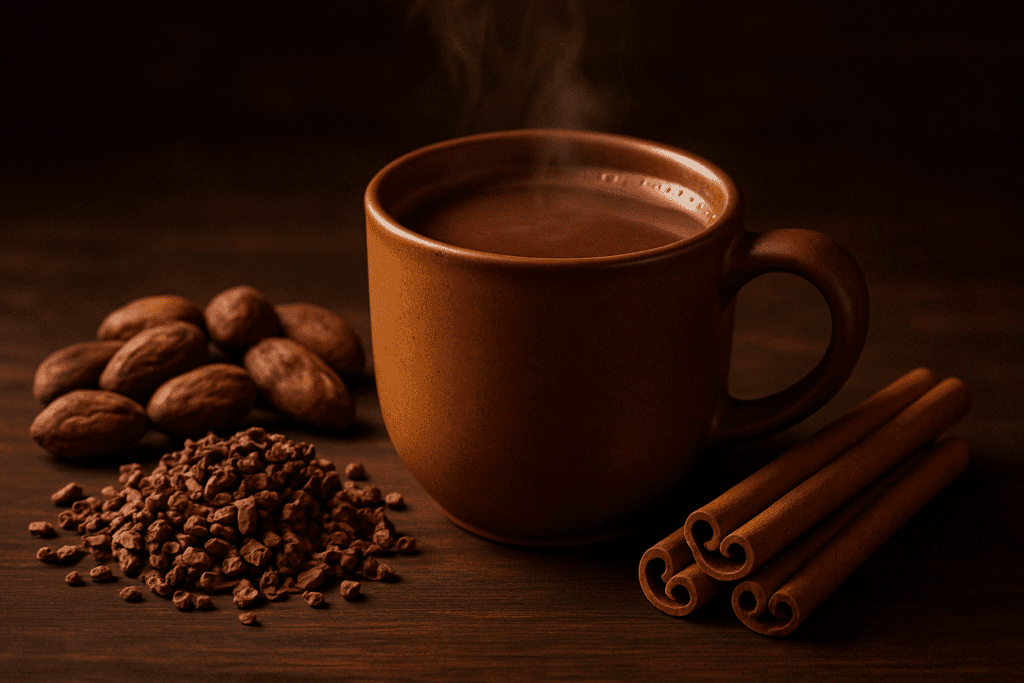
Frequently Asked Questions: Natural Ways to Get Caffeine Without Coffee
1. What are some overlooked but effective ways to get caffeine without coffee?
One often-overlooked method is through cocoa-based drinks, especially ceremonial-grade cacao or high-cacao hot chocolate. These drinks provide mild caffeine along with theobromine, which delivers smoother, more sustained energy without the abrupt jolt of coffee. Guayusa tea, less common than yerba mate, also offers clean stimulation and is rich in L-theanine for calm focus. Another smart option is matcha-infused protein smoothies, which provide not only the best morning caffeine drink alternative but also help stabilize blood sugar. These natural ways to get caffeine support focus while being gentler on digestion than acidic coffee.
2. How can I make my own best morning caffeine drink at home without coffee?
Start with green or black tea as your base, then enhance it with adaptogens like rhodiola or ginseng, which can increase alertness naturally. Adding a splash of citrus juice can improve antioxidant absorption and offer a bright flavor. For sustained energy, consider blending your tea with collagen peptides or a plant-based protein to reduce mid-morning crashes. Many DIY energy drink recipes also include maca or guarana as natural ways to get caffeine without coffee. Customizing your own morning energy drink lets you avoid artificial additives while tailoring ingredients to your needs.
3. What are the long-term benefits of switching to natural caffeine sources?
Natural caffeine sources like matcha, yerba mate, or guayusa often contain synergistic compounds such as antioxidants, amino acids, and polyphenols that support brain health and metabolic balance over time. Unlike coffee, which may contribute to cortisol spikes and digestive irritation in sensitive individuals, these options promote gentler, sustained wakefulness. Long-term use of these alternatives is also associated with improved mood regulation and reduced dependence on caffeine due to their adaptogenic profiles. Choosing the best morning caffeine drink that includes L-theanine or ginsenosides can even enhance resilience to stress. Transitioning to natural ways to get caffeine helps support cognitive and physical endurance more holistically.
4. Can switching from coffee to tea improve my focus and mental clarity?
Yes, and here’s why: tea—particularly green tea and matcha—contains both caffeine and L-theanine, a compound known to reduce anxiety and improve concentration. The combination supports a more relaxed state of alertness, making it one of the best morning caffeine drink options for deep work or studying. Moreover, tea generally results in fewer jitters and less irritability than coffee. Herbal stimulants like yerba mate also contain additional xanthines that offer multi-dimensional stimulation, aiding in long-term cognitive performance. These natural ways to get caffeine without coffee enhance mental clarity by improving both attentional control and mood stability.
5. Are caffeine alternatives without coffee better for gut health?
In many cases, yes. Coffee is acidic and can aggravate conditions like GERD, acid reflux, or IBS. In contrast, teas like matcha or guayusa are alkaline-forming and gentler on the digestive tract. Additionally, some of the best morning caffeine drink alternatives include prebiotic ingredients like chicory root or dandelion, which may actually support gut flora. Avoiding coffee can also reduce dependence on laxative effects, encouraging your body to reestablish natural bowel rhythms. If you’re sensitive to stomach upset, exploring natural ways to get caffeine without coffee is a strategic move for digestive wellness.
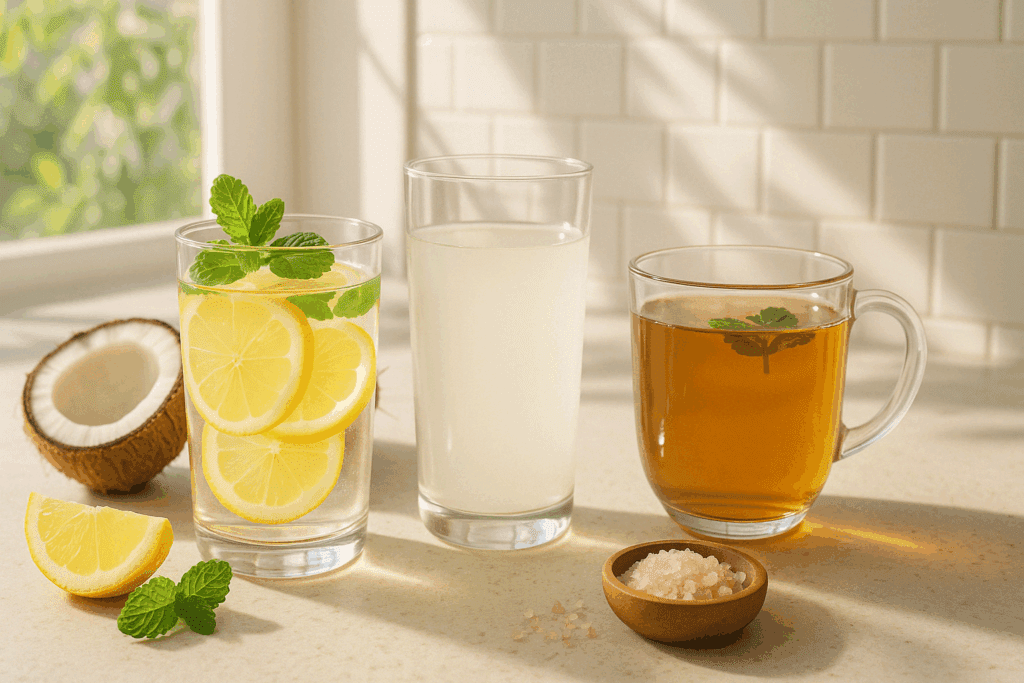
6. What are some clean-label energy drinks that provide caffeine without coffee?
Look for functional beverages made with ingredients like green tea extract, guayusa, or fermented yerba mate. Brands focusing on nootropic or adaptogenic formulas—often found in the wellness or biohacker communities—are leading the way in creating the best morning caffeine drink alternatives. Some also incorporate nootropics like L-tyrosine or lion’s mane to support brain function alongside energy. Beverages with minimal sugar, organic certification, and transparent ingredient sourcing offer added peace of mind. These cleaner energy drinks offer natural ways to get caffeine without coffee while supporting mental performance and clean-label living.
7. How can I use caffeine alternatives for better exercise performance?
Guarana, green tea extract, and yerba mate can enhance endurance, improve focus during workouts, and reduce perceived exertion. They release caffeine more slowly than coffee, helping prevent early burnout during long training sessions. Many athletes find that using the best morning caffeine drink with added electrolytes or adaptogens like cordyceps mushrooms enhances both energy and recovery. If pre-workout powders make you jittery, consider natural ways to get caffeine without coffee—like matcha or guayusa—as a smoother energizing option. These alternatives help sustain performance while minimizing the harsh stimulation often caused by synthetic blends.
8. What are some psychological effects of switching from coffee to natural caffeine?
The transition often leads to improved emotional stability and fewer anxiety symptoms, particularly in individuals prone to overstimulation from coffee. Natural caffeine sources tend to provide more gradual onset and offset, helping users avoid the dramatic peaks and crashes associated with coffee withdrawal. Many people report enhanced mood, better stress resilience, and deeper focus when relying on natural ways to get caffeine. Over time, reducing reliance on coffee may also support healthier sleep cycles and reduced morning grogginess. The best morning caffeine drink options work with your body’s rhythm rather than against it, offering both physical and psychological benefits.
9. Can I combine multiple caffeine sources without coffee for better energy?
Yes, and in fact, strategic stacking can be highly effective. For example, combining matcha with guayusa or adding green tea extract to an herbal nootropic blend can enhance both the intensity and duration of alertness. Always monitor total caffeine intake to avoid overstimulation—aim to stay under 400mg per day unless otherwise advised by a healthcare professional. Synergistic combinations also allow for smaller doses of each source, which may reduce side effects. When used mindfully, combining different natural ways to get caffeine without coffee can amplify benefits while supporting sustained energy.
10. What’s the future of caffeine without coffee in wellness and nutrition?
As more people seek clean energy and gut-friendly alternatives, the demand for coffee-free functional beverages continues to grow. Expect to see more bioavailable caffeine sources like microencapsulated tea extracts, personalized nootropic blends, and adaptogen-infused energy shots. Even powdered versions of the best morning caffeine drink options are being developed with improved absorption technologies. Advances in nutraceuticals are also creating targeted formulas for focus, wakefulness, and productivity using natural ways to get caffeine without coffee. This trend reflects a broader shift toward wellness-focused, science-backed energy solutions that respect individual tolerance and long-term health.
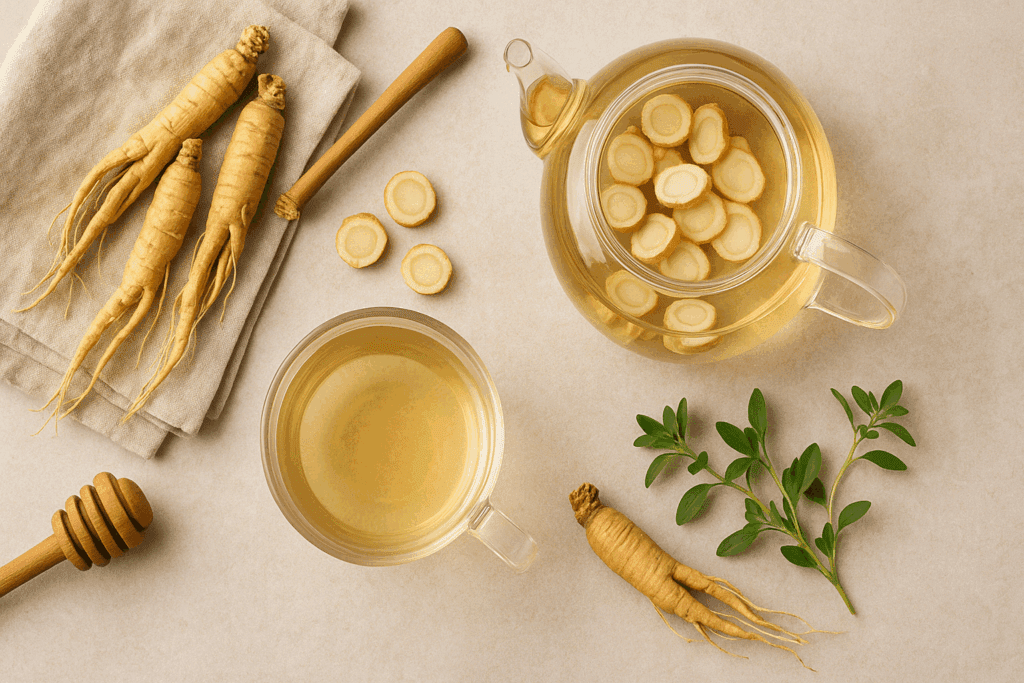
Final Thoughts: Embracing the Best Morning Caffeine Drink for Your Body and Mind
Navigating the many options for morning stimulation can feel overwhelming at first, but the path toward healthier, more conscious energy is both empowering and personal. Whether you’re replacing coffee entirely or simply diversifying your energy toolkit, the natural ways to get caffeine without coffee offer a spectrum of solutions tailored to your body’s needs and rhythms.
Remember that the best morning caffeine drink is one that aligns with your physiology, lifestyle, and long-term wellness goals. From matcha to guayusa, cacao to adaptogenic blends, each option brings a unique synergy of stimulation and nourishment. The right choice enhances not just your mental clarity in the moment, but also your resilience, mood, and focus throughout the day.
As interest in natural nootropics and holistic performance continues to grow, these alternatives provide a scientifically supported, experience-driven approach to wakefulness. Embracing this shift is about more than just avoiding coffee—it’s about stepping into a broader understanding of how your morning choices shape your energy, focus, and mental clarity for the hours ahead.
Was this article helpful? Don’t let it stop with you. Share it right now with someone who needs to see it—whether it’s a friend, a colleague, or your whole network. And if staying ahead on this topic matters to you, subscribe to this publication for the most up-to-date information. You’ll get the latest insights delivered straight to you—no searching, no missing out.
Further Reading:
9 Alternatives to Coffee (And Why You Should Try Them)


